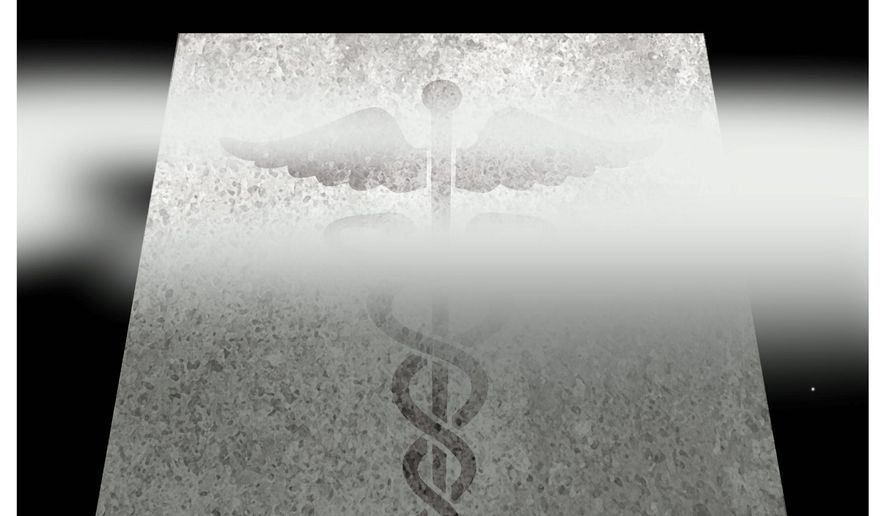OPINION:
This week’s Democratic debate in Des Moines, Iowa marked what felt like the millionth time candidates were confronted on the finer details of what has become widely known as “Medicare for All.” Despite the topic being mentioned 14 times in the debate, however, it seems zero progress was made toward making sense of this half-baked, dystopian aspiration.
“Let us be clear what Medicare for all does,” responded Sen. Bernie Sanders when confronted with the notion that his plan would introduce spending levels not seen since World War II. “It ends all premiums. It ends all copayments. It ends the absurdity of deductibles. It ends out-of-pocket expenses. It takes on the pharmaceutical industry, which in some cases charges us 10 times more for the same prescription drugs sold abroad as sold here.”
In other words, under Mr. Sanders’ plan, patients simply will not pay when they receive treatment at the doctor’s office. But such a state of affairs can only open a Pandora’s box of unforeseen consequences, from doctor shortages to a net lack of access to care to the complete eradication of individual choice.
By capping or decreasing reimbursement to health care providers, the incentive to enter or remain in the medical profession is diminished, resulting in fewer doctors overall. By definition, this alone constitutes a decrease in patients’ access to care; however, the problem becomes exacerbated as patients use health care services more in the absence of upfront costs. Placed into economic terms, when the cost to the consumer for a good or service is reduced to zero, demand skyrockets.
Under such circumstances, government rationing of services according to the determined level of need becomes inevitable. Given that the current health care industry already operates under the thumb of a Food and Drug Administration (FDA) that would sooner see terminally ill people die than experiment with potentially life-saving treatments, why should government bureaucrats and other non-geniuses be entrusted with determining who should be next in line to see the doctor? Why on earth would anyone want the people in charge of the DMV running our hospitals and clinics?
This would produce a two-tier system antithetical to everything Medicare for All strives to achieve — a hierarchical division of the population wherein the wealthy and well-connected maintain access to the highest-quality services while everyone else is left behind to suffer the consequences of government-run health care.
If this scenario sounds unrealistic, look at socialist Venezuela, where one-third of patients admitted to public hospitals die from otherwise preventable conditions while the wealthy and powerful enjoy private care or seek health care in other countries (including in the United States). Because the government is broke, patients are required to provide the medical equipment that will be used on them; this either comes from the overpriced, government-owned pharmacies or the black market.
Like most other government programs, universal health care would entirely miss the mark as it pertains to its intentions, leaving us with devastating unanticipated repercussions. The solution is simple: It’s time to untangle government from the equation, allow the free market to determine health care rates, and acknowledge health care as a deeply personal relationship between a patient and a doctor.
• Rick Becker is a doctor and member of the North Dakota House of Representatives.




Please read our comment policy before commenting.